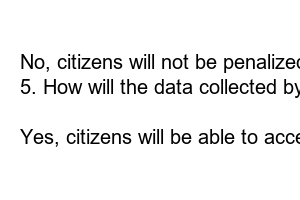국민행복카드 발급
Issuance of National Happiness Card: A Step Towards Measuring Happiness
Our lives are governed by a range of metrics that are supposed to gauge our success, happiness, and overall well-being. But is it enough to rely on measures like GDP, poverty levels, and educational attainment? It seems like the answer is a resounding “no”. Our growing obsession with quantifying progress has led to a situation where we are left feeling alienated and unhappy, despite ticking off all the boxes on the list.
Thankfully, there are some voices calling for a different approach to measuring happiness. One such initiative is the issuance of a National Happiness Card. In this blog post, we will explore this innovative project, looking at its origins, features, and potential impact.
Origins of the National Happiness Card
The first question that comes to mind is – what is a National Happiness Card, and where did it come from? The idea behind the card is that it would be a physical document issued to citizens by a government, upon which they can log their happiness ratings and other details related to their overall well-being. This would allow governments to collate data that could be used to measure the happiness levels of its citizens.
Benefits of the National Happiness Card
There are a plethora of benefits associated with the issuance of a National Happiness Card. The card would provide a wealth of data that could be used to identify trends, patterns, and other useful insights. This could lead to the development of policies and initiatives that are tailor-made to address the specific needs and concerns of citizens.
Features of the National Happiness Card
But what would the National Happiness Card actually look like, and what features would it have? The card would be a physical document that citizens carry with them at all times, much like a driver’s license or national ID card. It would have space for citizens to log their happiness ratings, as well as other relevant information like stress levels, daily activities, and overall satisfaction with life.
Challenges faced by the National Happiness Card
Of course, any project of this nature is bound to face significant challenges. One such challenge is ensuring that citizens are comfortable with the idea of logging their happiness ratings and other personal details. Government agencies would need to take great care to ensure that citizens’ privacy is protected and that the data is collected and used in a responsible and ethical manner.
Conclusion
The National Happiness Card represents a radical departure from our current obsession with metrics like GDP and educational attainment. By focusing on citizens’ well-being, we could unlock a wealth of insights that could lead to more effective policies and initiatives. While challenges remain, it is heartening to see that there are initiatives like this that are seeking to make our lives happier and more fulfilling.
FAQs:
1. Is the National Happiness Card mandatory for citizens?
No, the card is not mandatory, and participation is voluntary.
2. Are all countries planning to implement a National Happiness Card?
No, the project is still in its infancy and has only been implemented in a handful of countries.
3. Will the data collected by the National Happiness Card be used for commercial purposes?
No, the data will be used solely for the purpose of measuring happiness levels and identifying trends.
4. Will citizens be penalized for low happiness ratings?
No, citizens will not be penalized for their happiness ratings; the card is meant to be a tool for self-assessment and self-improvement.
5. How will the data collected by the National Happiness Card be used?
The data will be used to identify trends and patterns, which can then be used to develop more effective policies and initiatives.
6. Will citizens have access to their own data?
Yes, citizens will be able to access their own data, and use it to track their own progress over time.

